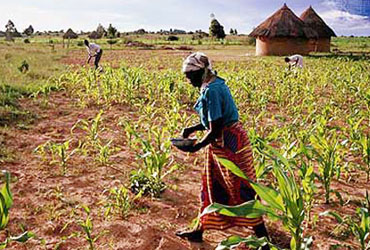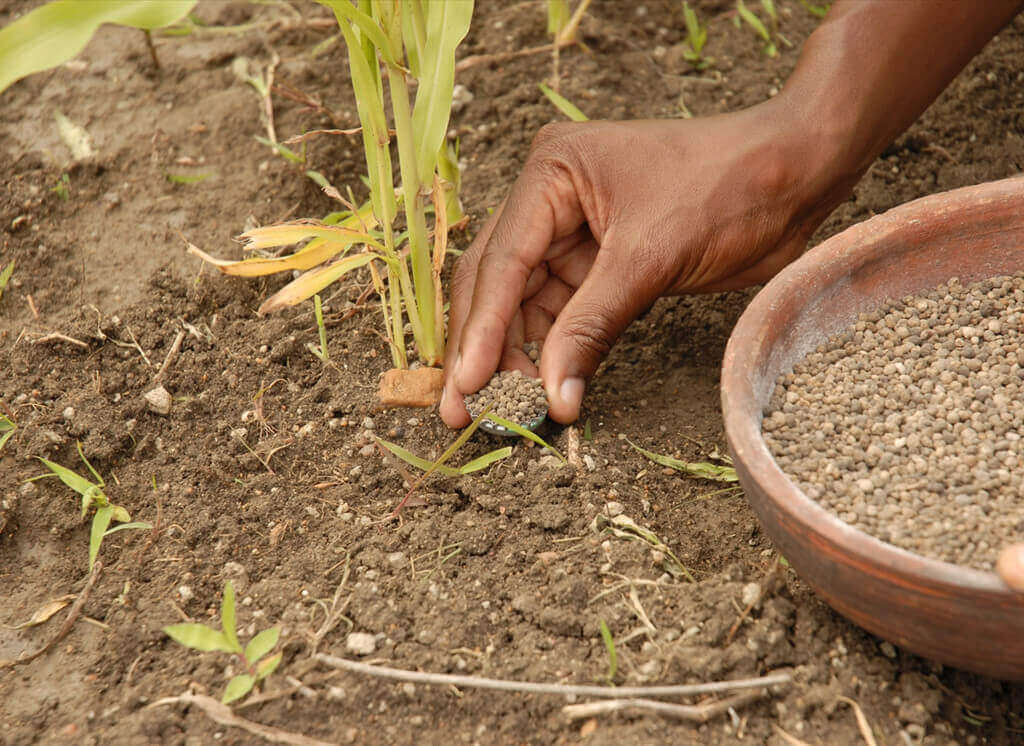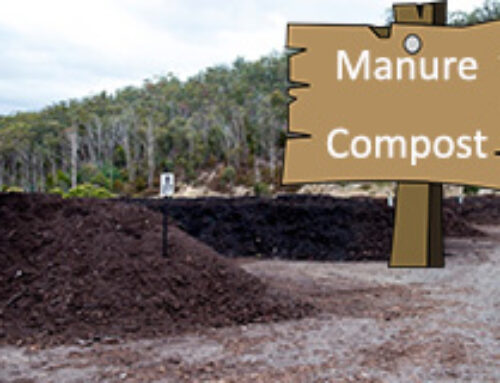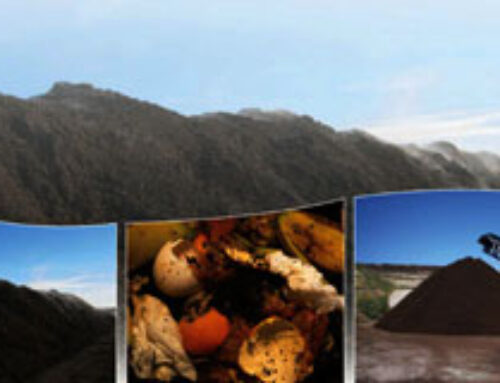Zimbabwe Agriculture Introduction in Brief
Agriculture is one of the economic pillars in Zimbabwe, with agricultural output accounting for about 20% of GDP. 40 percent of Zimbabwe’s export income derives from agricultural products. 50 percent of the industry relies on agricultural products as raw materials. There are 33.28 million hectares of arable land. The agricultural population accounts for 67 percent of the population. The main grain and cash crops are corn, wheat, sorghum, soybeans, peanuts, tobacco, cotton, coffee, sugar cane, and tea. The overall level of agriculture is relatively developed, known as the “Southern African granary.” However, the development is very uneven, with advanced commercial farms and backward village farming coexisting.
In 2014, corn production reached 1.46 million tons; tobacco production 216,000 tons, close to the best level in history; cotton production of 136,000 tons, down 6.2% over the previous year. Affected by drought, a large area of food crops failed since 2015. According to related statistics, there is one-third of the workforce employed in agriculture. Agriculture supplies 60 percent of raw materials for the manufacturing industry. Commercial farmers purchase about 350,000 tons of fertilizer per year, and smallholder farmers about 100,000 tons.
In Zimbabwe, 62 percent of households are poor. In addition, Zimbabwe has faced food insecurity issues that would escalate the government’s political and economic crises. The supply of fertilizer in Zimbabwe has been affected by government policy, finance, and infrastructure. Income is the key factor that drives farmers to adopt more effective and sustainable organic fertilizer production technologies. And smallholders are willing to adopt new production methods when risks and limitations are reduced simultaneously.
Organic fertilizer has been paid great attention to nowadays in Zimbabwe. There are droughts frequently caused by climate change. Because of global market requirements, tobacco farmers need to make production in a green and sustainable method. In this way, producing organic fertilizer is a great way because of its low cost in construction and promising development. On the other hand, fertilizer price is always rising so it is difficult for farmers to buy chemical fertilizer. Therefore, organic fertilizer production is considerably higher than chemical fertilizer usage.
Organic Fertilizer Demand in Zimbabwe
Smallholder farmers use animal manure, crop straws, and composts in gardens and plots for many years in Zimbabwe. A large volume of organic waste is generated nationwide in Zimbabwe every day. It faces environmental pollution and waste management issue, but people have no efficient way to treat the waste. Because of arid and semiarid climates land, farmers suffer droughts and crop failures. In some areas in southern Africa, most freshwater cannot be used because of contaminants and pollution. What’s worse, it faces soil degradation, leading to fragile and dry lands. Some Western methods of cultivars are not suitable for low-rainfall climates.
Using pesticides and chemical fertilizer is expensive for small-scale farmers who have less than three-hectare land. The fertilizer supply in Zimbabwe is affected by government policy, finance, and infrastructure. Farmers’ demand for fertilizer is driven by their ability to acquire fertilizer, water usage, and fertilizer use knowledge. The government subsidy was affected by corruption and project failure. The government tried to distribute subsidized seed and fertilizer to farmers but most of the farming community went to buy fertilizer from the private sector through the chemical fertilizer is expensive and in short supply. How to improve crop production and soil property become smallholder farmers’ concerns. These vulnerable households also want to reduce fertilizer costs, lower bulk density, improve soil fertility, and learn some organic fertilizer production technologies so that they can increase income.
Organic Fertilizer Production in Zimbabwe
Nico-Orgo is Zimbabwe’s pioneer and leading company in organic fertilizer production and distribution. The company enables organic fertilizer making to develop from the traditional way to the modern way. Zimbabwe increases organic fertilizer production as well. Vermicompost(earthworm) organic fertilizer, organic liquid fertilizer, and organic solid fertilizer are common forms in Zimbabwe.
In fact, many raw materials can be used to make organic fertilizer, like bat-guano, animal manure, crop residue, etc. Zimbabwe is home to various caves with different guano deposits. They are great raw materials for organic fertilizer production because of their high NPK contents. All organic matter can be collected from common market grounds, which is suitable for decomposing. Using organic animal manure to produce organic fertilizer pellets or compost is a good way to help improve climate conditions. In addition, commercial organic fertilizer production using animal manure as raw materials serves as a promising field for increasing smallholders’ income. There are two methods for organic fertilizer making, organic composting making, and solid organic fertilizer granule production.
Collect all materials that can be used for organic fertilizer making first. Make organic fertilizer compost piles in trapezium shape(1-1.5m height, 2m width, unlimited length). If your raw materials are in high water content, you should reduce the water content to less than 60%, adding crop straws, cured hay, sawdust, etc. When you make compost piles, you can put some straws on the bottom, put your main organic fertilizer materials(animal manure, sludge, kitchen organic waste, etc.) in the middle of the pile and add straws on the top of the pile. And then control compost temperature. When the temperature is higher than 55℃, turn the pile once to prevent too high a temperature on the center of the pile. The whole organic fertilizer composting time needs 7-15 days.
※ Organic fertilizer granule production process
It needs large-scale commercial organic fertilizer production to meet farmers’ high demand for fertilizer. Acquiring the correct production technology and purchasing suitable and high-quality fertilizer making is necessary for production. There is a complete organic fertilizer granule production process for commercial solid organic fertilizer making.
Raw materials dewatering→organic fertilizer composting and fermentation→crushing→organic materials mixing→organic fertilizer granulation→organic fertilizer sieving→drying→cooling→packing
See more organic fertilizer production technology
Organic Fertilizer Development Opportunities and Challenges in Zimbabwe
Organic fertilizer development in Zimbabwe, especially commercial organic fertilizer, is associated with opportunities and challenges. Effective regulations are needed by farmers to increase high-quality product yield. However, lack of awareness and backward infrastructure have a negative impact on organic fertilizer development.
Bio-organic fertilizer development opportunities are related to BNF potential, crop production, and income increase. There is low N fertility in Zimbabwe lands. Organic fertilizer from animal manure or other resources has great BNF(biological nitrogen fixation) potential. It provides an N element for plant growth, which is an economic and sustainable method compared to chemical fertilizer. It has been estimated that BNF can increase by 19-58% for rice production. It also is good for non-legume growth, such as sugarcane, wheat, and maize. Using organic fertilizer can increase crop yield, which is recorded in the world. Soybean yield increases by 2000kg/ha by using organic fertilizer in Zimbabwe. Obviously, higher nutrient efficiency, benefit-cost ratio, and reduced demand for chemical fertilizer are good for organic fertilizer market development and profitable for farmers, in addition to environmental improvement. It is suitable for sustainable agriculture development guidance. As is known to all, fertilizer use is low in Zimbabwe leading to severe nutrient depletion. The more organic fertilizer used, the better the soil condition in Zimbabwe is.
As for the organic fertilizer development challenge, it shows nutrient availability, market development constraints, drought, and pH value. Soil condition in Zimbabwe is not good and drought exacerbates nutrient depiction. In addition, farmers’ awareness of organic fertilizer production and application needs to be strengthened. In this way, it needs the government guides farmers to make and use organic fertilizer. Policy promoting and subsidy are also indispensable.







